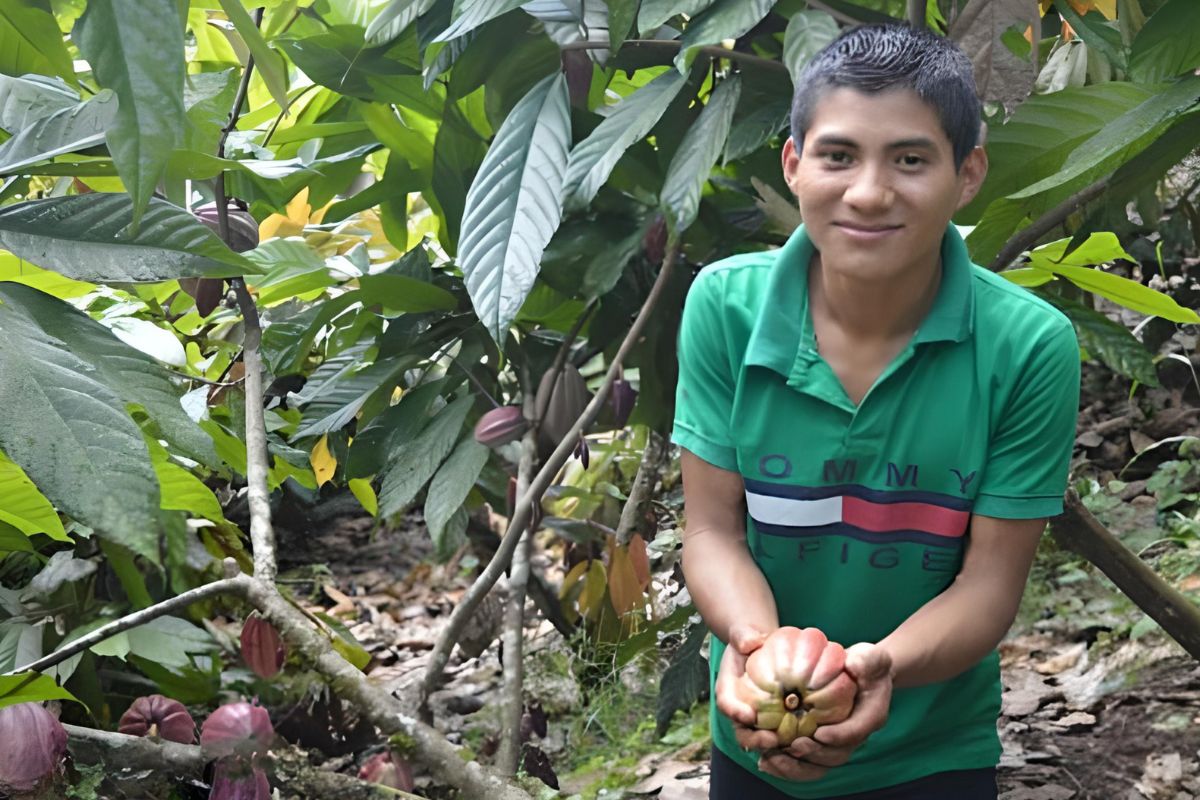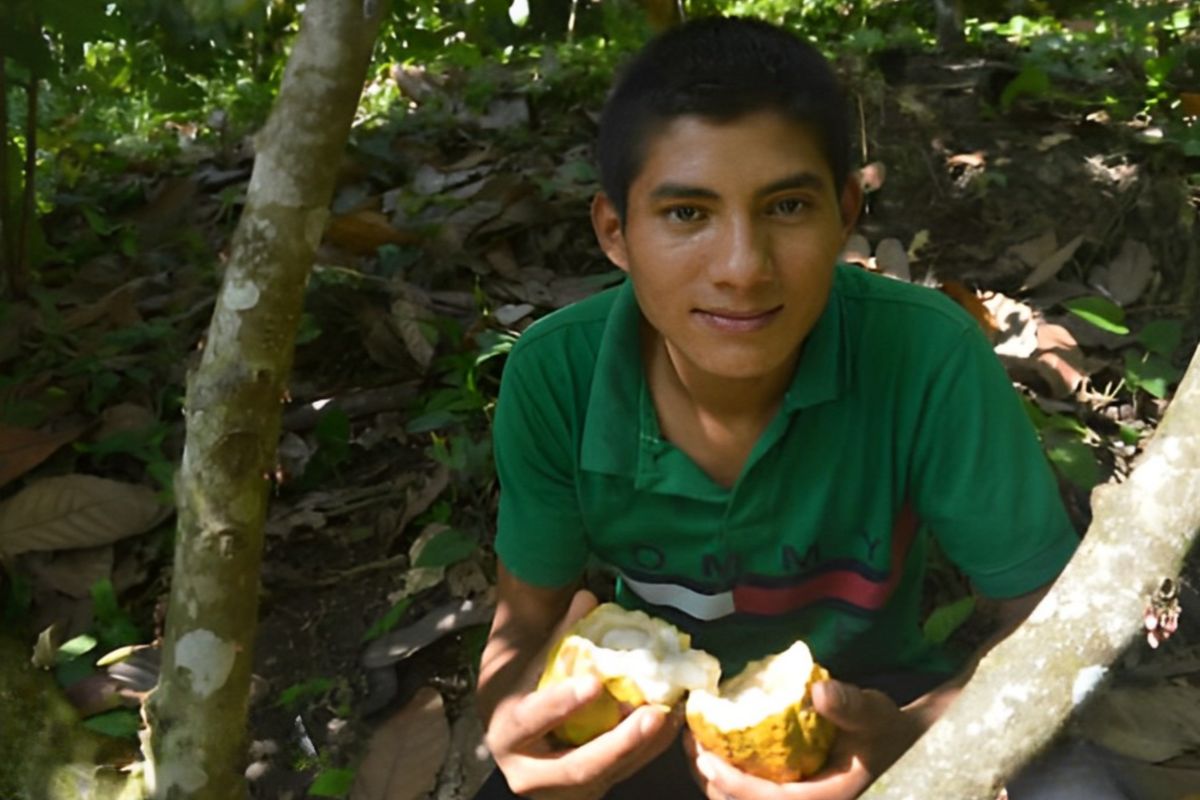Cacao, Worms, and a Teenage Farmer’s Dream

For Alexis Benito, farming was more than a way of life. It was his passion.
The 18-year-old grew up in Las Torres, a village of 135 families nestled in lush hills in Central America. Throughout the village grew plots of corn, beans, cacao, and coffee, which served as the lifeblood of the community. Most people in his community—including Benito’s family—were subsistence farmers, consuming what they grew and selling their surplus to cover their additional needs.
Distant Dreams
Every day as Benito worked in the fields, gently caring for the precious plants, he dreamed of attending agronomy school, but it just didn’t seem possible. Ever since his oldest brother moved away to work as a veterinarian, there were fewer hands to help feed the rest of the family, much less pay for college. Even if his own passions could be used for the benefit of the community, it just wasn’t an option. He had two younger siblings (15 and 12) and his parents to look after. Maybe later, he told himself.
Growing Cacao and Responsibility
Fortunately, Benito didn’t have to wait for long. When a local partner of Partners Worldwide visited the village, Benito (then 16) learned about their network for young entrepreneurs. He leaped at the chance and began assisting with cacao grafting for the next eight months.
Through his work, Benito demonstrated his knowledge and work ethic, which led to him being selected to oversee the organic inputs processing plant. In this role, Benito is in charge of monitoring the composting and vermiculture (worm growing) processes. But his responsibilities don’t end there. He also coordinates the pruning and registration of plants in the nursery and oversees fertilization, weed control, shade control, and harvesting in the clonal garden.

Education for a Thriving Ecosystem
His hard work has since paid off. Not only is Benito able to support his family through his income, he is able to pay for his studies. Every Saturday, he makes the 1+ hour journey to San Jose de Bocay, where he studies agricultural engineering. This education, combined with the skills he has already accumulated, will prove invaluable in crafting an ecosystem that can serve his community for years to come.